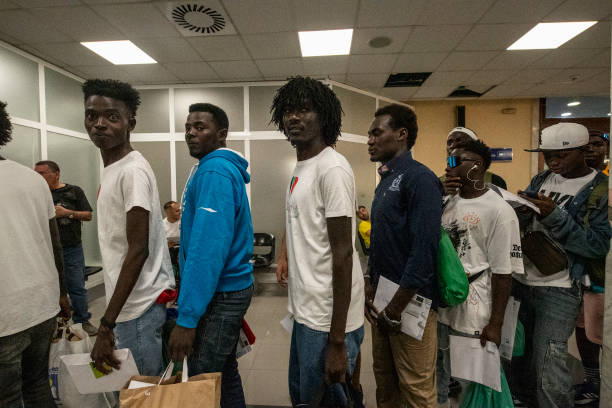'The Idaho Four': Read Excerpt From James Patterson, Vicky Ward Book
In an excerpt from James Patterson and Vicky Ward’s new book ‘The Idaho Four: An American Tragedy,’ we meet two police chiefs as they have one shocking revelation about Bryan Kohberger
The Idaho Four: An American Tragedy (Little, Brown) by James Patterson and Vicky Ward, out July 14, tells the story of the college murders that took place in Moscow, Idaho in November 2022. As the title suggests, the book takes the reader into the lives of the four victims: Kaylee Goncalves, Madison Mogen, Xana Kernodle, and Ethan Chapin. It also gives what the New York Post has called “the clearest account” yet of the motives driving Bryan Kohberger, the criminology PhD student who pleaded guilty to the crimes this month thus escaping a trial and the death penalty. The book is also the story of the fallout from the murders on the twin college towns of Moscow, Idaho, and Pullman, Washington State, which are cultural opposites, but a mere 10-minute drive from each other. Typically, when there’s a serious crime in either town, both police departments spring into action to help each other. But in the winter of 2022, the Moscow PD remained tight-lipped, even to their friends over in Pullman, fearful that the smallest leak could jeopardize the investigation — which appeared to be going nowhere.
Until, that is, after six weeks, they got a break, after a lab successfully used the new methodology of Investigative Genetic Geneaology to reconstruct a family tree from the DNA found on a knife sheath left behind at the crime scene. Suddenly, the police chief of Washington State University in Pullman, gets a call from his old friend in Moscow, Chief James Fry…
Below is an excerpt from the book, telling what happens next:
***
Pullman, Washington
December 28, 2022
The WSU police chief, Gary Jenkins, is finishing up for the day when he sees that James Fry is calling his cell phone.
“Can you meet at our police department?” Fry asks.
Jenkins and Fry are old friends. Jenkins was recently reassigned to WSU, but prior to that, he ran the Pullman Police Department for twelve years.
It’s highly unusual for Fry to be as secretive and tight- lipped as he’s been about the Idaho Four, as the victims are coming to be known, but the chiefs have helped each other out on dozens of cases. Jenkins knows what his friend is trying to prevent: somehow tipping off the murderer. So, as he drives over to the Moscow police station, he assumes Fry’s holding a second multiagency briefing, similar to the one where they asked for help searching for the white Hyundai Elantra.
But when Fry meets Jenkins at the front door of the station, the WSU
chief senses this is different.
Jenkins follows Fry upstairs and into the conference room and sees a
sea of faces. He realizes the entire team of investigators is gathered there,
waiting for him.

What they are about to tell him, Fry says, is completely confidential, not to be shared even with his agency.
In that instant he realizes why he’s there.
They’ve found whoever did this.
And this person is at WSU. On his turf.
His heart sinks.
Brett Payne says, “We think we know who the suspect is, and he’s in WSU housing.”
And then he says his name: “Bryan Kohberger.”
Odd name, Jenkins thinks. But it’s an odd familiar name. It rings a bell, and then it comes to him.
“I know that name,” he tells the people in the room.
He sees astonishment on their faces.
“I think I interviewed him for an internship position when I was Pullman chief. I probably have his résumé and cover letter in my files.”
He goes straight back to his office and sends them over.
Payne and the team receive them, and their contents make it straight onto Payne’s draft affidavit, the one he’ll submit providing evidence to justify an arrest warrant for Kohberger. It already contains what the police have discovered about the path of the Hyundai Elantra, Kohberger’s cell phone records, and what Dylan Mortensen saw that night.
Payne now adds to it the following: Pursuant to records provided by a member of the interview panel for Pullman Police Department, we learned that Kohberger’s past education included undergraduate degrees in psychology and cloud-based forensics. These records also showed Kohberger wrote an essay when he applied for an internship with the Pullman Police Department in the fall of 2022.
Kohberger wrote in his essay he had interest in assisting rural law enforcement agencies with how to better collect and analyze technological data in public safety operations. Kohberger also posted a Reddit survey which can be found by an open-source internet search. The survey asked for participants to provide information to “understand how emotions and psychological traits influence decision making
when committing a crime.”
While Payne is writing, Jenkins is sitting in front of his computer, already running his to-do list through his mind. He’s getting ready for what he’ll say when he’s allowed to share what he knows and for when
his team gets the green light to write the warrants for the Moscow team to search Kohberger’s home and office.
Thank God he’d spoken to the guy in charge of camera security along Stadium Way, the main street in Pullman.

Soon after the murders they’d agreed it might be worth holding on to the footage of the night of the murders beyond the regular retention of sixty days.
He sees in his databases that the Pullman cops pulled over Kohberger in October. And he now sees that his guys, Officers Tiengo and Whitman, had identified the car a few weeks back.
WSU’s community is going to freak out when Kohberger is arrested. Jenkins knows this. He’s got a team of counselors on standby for the cops; he’ll almost certainly have to offer their services to the university.
He goes back to his database. What else was there about this guy that was missed?
There was a break-in near his apartment reported recently. Wasn’t there some story about a student being followed to her car?
What else?
His train of thought is interrupted by his phone. It’s Fry, thanking him for Kohberger’s résumé and cover letter. “No problem,” says Jenkins.
“Oh, and Gary, one more thing,” says Fry, letting out a small chuckle:
“Aren’t you glad you didn’t accept his application?”
“More than you know,” replies Jenkins.
From the book THE IDAHO FOUR: An American Tragedy by James Patterson and Vicky Ward. Reprinted by permission of Little, Brown and Company, a division of Hachette Book Group Inc., New York, NY. All rights reserved.
You may also like...
In the Shadows of the Signal: How Africa is Fighting a War It Cannot See

The article discusses the growing threat of cyberattacks in Africa, likening it to a "quiet war" being waged through dig...
Beyond Fintech, A Continent on the Rise

Africa's tech landscape is rapidly diversifying beyond fintech. Discover how innovation in sectors like AI, health tech,...
Should Religion Still Dictate Morality in a Secular Age?

This bold essay unpacks the complex relationship between faith, law, and public life—exploring where religion uplifts mo...
Africa’s AI Moment: Are We Innovating or Just Consuming?

As AI reshapes Africa’s digital landscape, the continent stands at a crossroads: Will it lead innovation or remain a tes...
The Rise of AfroAnimation: How African Studios Are Telling Our Stories With Global Appeal
(26).jpeg)
African animation is breaking boundaries as studios across the continent craft vibrant, culturally-rooted stories with g...
Digital Dakar: Why Senegal Is Africa’s Next Fintech Capital

Senegal’s capital, Dakar, is emerging as Africa’s next fintech powerhouse, driven by mobile money innovations, a youthfu...
The Global South Doesn’t Need a Savior: It Needs Equity

This incisive essay dismantles the outdated saviour complex, calling for a bold shift from patronising charity to genuin...
The Strangers Next Door: A New Dilemma at Africa’s Threshold

The article discusses the deportation of African nationals by the United States to eSwatini, a small southern African ki...





